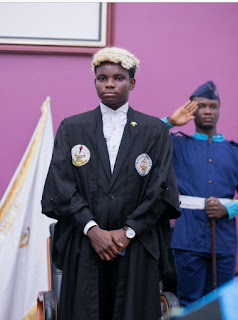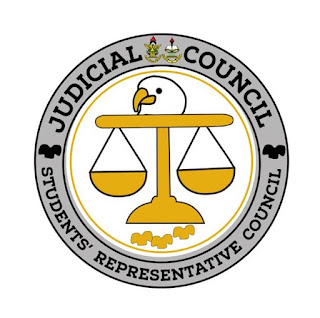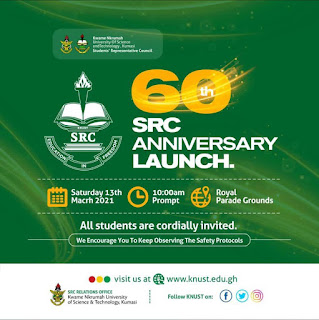The KNUST SRC Judicial Council Educates Students on the Essence of Commemorating Ghana’s Constitutional Day
On this day, January 7, Ghanaians observe the Constitutional Day as a public holiday to recognise the Fourth Republican Constitution, which came into effect on January 7, 1993.
BACKGROUND
The celebration is to remind Ghanaians on the need to maintain and sustain the country’s democratic dispensation, which is widely touted as the beacon of Africa’s democracy.
However, some constitution and political pundits have downplayed the relevance of the Constitutional Day celebration, arguing that, the 1992 Constitution had lots of limitations that do not promote democratic rule and, therefore, called for serious amendments to some provisions in it.
They argued that the Constitution conferred powers on the Executive arm of government and upsets the required balance of power to other countervailing authorities-the Legislature and the Judiciary.
They averred that the mere existence of a Constitution did not necessarily promote constitutionalism and that it would serve the nation better if political actors reviewed and amended portions of the Constitution to bring it at par with the principles of contemporary constitutionalism.
Even though a National Constitutional Review Commission was established by President John Atta Mills on 11th January 2010, to review portions of the Constitution, and subsequently submitted its report to Government on 20th December 2011, not much has been achieved so far.
The country adopted a Unitary Republic with sovereignty residing in the people and designed to ensure probity, accountability and the rule of law and ensuring power-sharing among the three arms of government- the Executive, the Legislative and the Judiciary.
It must have however be ascertained that, the 1992 Constitution although with several shortfalls yet the best attempt at constitutionalism after independence in 1957. Hence, worth celebrating!
 |
| Michael Gyan - KNUST SRC JC |
The Constitution, according to constitution pundits, reflected the lessons learnt from the previous constitutions of Ghana such as the 1957, 1960, 1969 and 1979, which incorporated some provisions and institutions drawn from British and the United States constitutional style.
1. The Independence Act, 1957 was first established to give Ghana a full responsible status.
2. The 1960, 1st Republican Constitution was later established to repeal the Independence Act and to declare Ghana as a Sovereign Unitary Republic. The 1960 first Republican Constitution has been criticized for not having safeguarded constitutionalism(It did not ensure judicial independence, The President was part of Parliament, the First President was conferred special legislative powers to make laws where he deemed it necessary to be within the nation’s interest and such enactment was to alter existing legislations but not the constitution)
3. On 24th February, 1966 the National Liberation Council overthrew the Nkrumah government and steered the Executive and the Legislative arms through proclamations but the judiciary continued to be in existence. The government ushered Ghana into the Second Republic in 1969 by the promulgation of the 1969 Constitution. This constitution was described by Archer CJ in the 31st December Case as one that safeguarded Judicial Independence and the American concept of the doctrine of Separation of Powers was discernible throughout the document.
4. After several military takeovers, on June 4th 1979, the Armed Forces Revolutionary Council led by Fl Lt K.J Rawlings ook over power and reintroduced Constitutional democracy. Thereby ushering Ghana into the 3rd Republic by establishing the 1979 Constitution with the Limann democratically elected government in reigns. This constitution was characterized by strict separation of powers where Ministers were supposed to be qualified as MPs with prior approval from Parliament. However, MPs appointed as Ministers were to resign as MPs.
5. On 31st December 1981, Limann’s government and the 1979 constitution were overthrown and abrogated respectively by J.J Rawlings. He governed the country through proclamations and decrees until 6th January 1993 when a democratic government was elected and the 1992 Constitution came into force on the 7th of January.
Flight Lieutenant Jerry John Rawlings , a retired Airforce pilot, who for 10 years, presided over the Provisional National Defence Council (PNDC) won the 1992 presidential elections and subsequently sworn into office as President of the Republic.
After serving two terms in office, President Rawlings handed over political power to
Mr J.A Kufuor, an economist and a lawyer, popularly known in political circles as the “gentle giant” became the second President under the Fourth Republic after emerging victorious in the 2000 presidential polls.
He was sworn into office on January 7, 2001, marking the first peaceful democratic transition of political power in Ghana since independence independence.
After serving two terms in office, President Kufuor bowed out of the political scene as the Constitution of Ghana demanded.
The Ghanaian electorate, through the ballot box, elected Professor John Evans Atta Mills, popularly known as “Asomdwee Hene” into power as the third President of the Fourth Republic.
After President Prof. Atta-Mills’ sudden demise in 2012, his Vice, John Dramani Mahama was sworn-in as President and led the country through a successful and peaceful election on December 7, 2012, which he eventually won.
He was defeated in the 2016 general election and ushered-in Nana Addo Dankwa Akufo-Addo-led government into office on January 7, 2017.
Unless this holiday is used to educate the ordinary citizen, the holiday would not inure to any significant collective benefit.
It is a better Ghana we all want. Let us educate all citizens for them to take action in the interest of our dear country.
This holiday is to serve as a recognition of the 4th republican constitutional dispensation of Ghana which started on January 7, 1993. This holiday is also to recognize the country’s effort to maintain and sustain the 4th republic over the years.
Happy Constitutional Day! Hurray!!
Signed ,
SRC Judicial Council
-
Story by: Kaakyire Amponsah/KNUSTTigerEye




Comments
Post a Comment